Denver Wellness Startups Are on the Brink of Something Huge
17th July 2015
Addaero partners on a mountain bike trip.
The health and wellness market exploded in the past few years, and Denver is producing some solid contenders in the market. Denver startups are leading the way when it comes to thinking of new ways to make it easier to get healthy and stay healthy. Check out these startups that are addressing previously-unmet needs you didn’t even know you had!
Addaero: This online platform connects coaches, groups and individuals to design, track and analyze health and fitness. Basically, it’s an online platform and a personal trainer designed to help anyone on the fitness spectrum to get the support they need to meet their health and wellness goals.
“There was, and I still believe there is, a lot of need for education,” says Joshua Ross, Addero’s Vice President of Business Development.
“In terms of coach-based apps where the user can interact with a coach and they can be guided through physical activity – that’s still a new concept,” he says. “Training tips have been around the longest, but there’s much more data and analytics in terms of athletes. We don’t dive as deep.”
Addaero is a bootstrapped startup, meaning instead of being funded by investors, they’re funded by credit and loans. Instead of being pressured to generate return for investors, they’re able to focus on building a platform that their coaches and users want. “We’ve been hyper-focused on our core group of customers as we’ve built the product — around the cycling, running and endurance coaches,” Ross explains.
And there are loads of opportunities to expand the use of Addaero. It’s not just for personal trainers or health and wellness coaches. “We’re expanding our coach reach. There are so many different types of coaches and we think ‘Wow, I didn’t even think of that,’” he says. “For example: biathlon coaches. That makes a lot of sense.”
Another opportunity for expansion includes the multi-million dollar industry of school sports.
“The next steps is collegiate athletics because of the way the rules are around the NCAA for when students can interact with coaches,” Ross says. “Once a sport ends – football for example – the coaches were not allowed to have any contact with the student athletes until the next window, which would be spring practice.”
Then, once spring practice is over, they can’t talk until the fall.
“So these athletes get binders with information about the strength and conditioning training,” he explains.
Instead of these binders, which basically create a one-way street between the coach and athlete, leaving the athlete to fend for themselves if they have questions or lose motivation, Addaero can build that gap to enhance their training. “They can build out the plan on Addaero, and keep track of progress,” Ross says. “Coaches can make changes or provide additional support or training depending on the athlete’s needs.”
“It helps these athletes become bigger, stronger and faster.”
Outdoors.io platform
Outdoors.io: Imagine you just rented a kayak for a day and loved it. So, you’re on the search for getting your own kayak, but find out that there are lots of options out there and the price range could be anywhere from $200 to $1,300 – maybe more – putting you in a bind as to which kayak to purchase.
Outdoors.io is looking to make that process a little easier by offering a peer-to-peer network where people in the market for sports equipment, like kayaks, can meet people who have already purchased and used the equipment to test it out for a few hours. In this model, the potential buyer can ask as many questions as they want and get candid, honest answers about the product, and the user gets the opportunity to make a few dollars and have fun at the same time.
“The concept of sharing and being outdoors – ultimately, we’re just trying to create something that would break down the barriers for people getting outside. And the primary barrier is gear,” says Rob Auston, CEO and Founder of Outdoors.io.
He explains, “If you’re thinking about kayaking, the foundational thing is to get a kayak; once you get a kayak – it’s, ‘Okay, where do I go?’ And the last part is, ‘Who can I go do this with?’”
“So, we focused on the foundational component,” says Auston.
Outdoors.io has pivoted its business model since its inception, trying to drill down to what consumers really need. What they’ve found is that it’s to keep things simple: find a product, test it out. If you like it, then buy it. “The model would be: you can demo it, and then buy directly from the brand or manufacturer.”
Another simple, consumer-driven component of their business model is the peer-to-peer interaction. “We’ve been at this for about a year, and we’ve learned about what’s attractive to potential owners, as well as people who have the gear already,” Auston says. “One of the things we’ve found is that for a lot of people, it’s not just about dollars or renting the gear; they want to interact who someone who knows some places to go kayaking or knows a lot about the product and can have that one-on-one; that more personal interaction.”
Outdoors.io provides something a little more than Facebook, Twitter and Instagram. While those are great platforms for staying in touch, there’s a next level of authentic connections. “People want to have real connections – not just liking things on Facebook. A way to connect with someone and really tell you about – who knows – maybe you get plugged into a new group of friends.”
by Lee Fox
1 Notes
 goodaudience likes this
goodaudience likes this innovatorspeak posted this
innovatorspeak posted this
